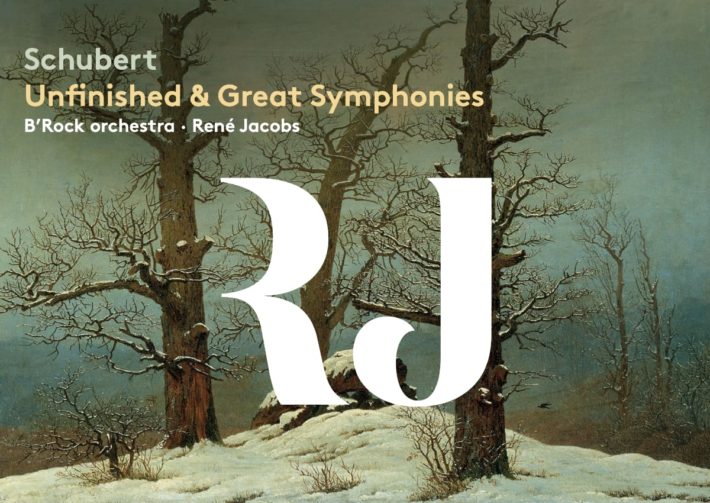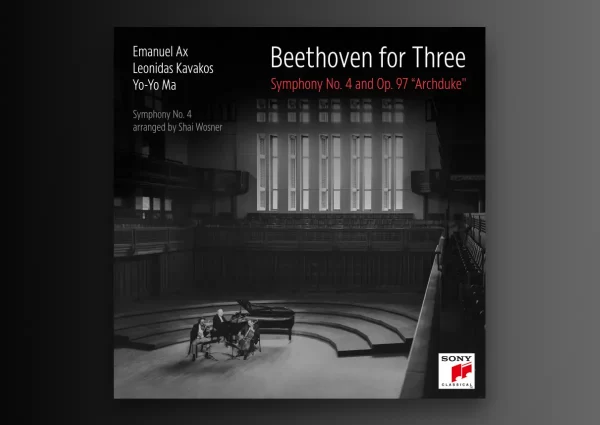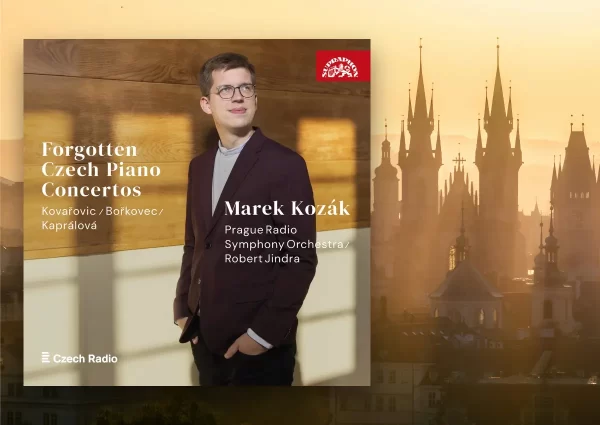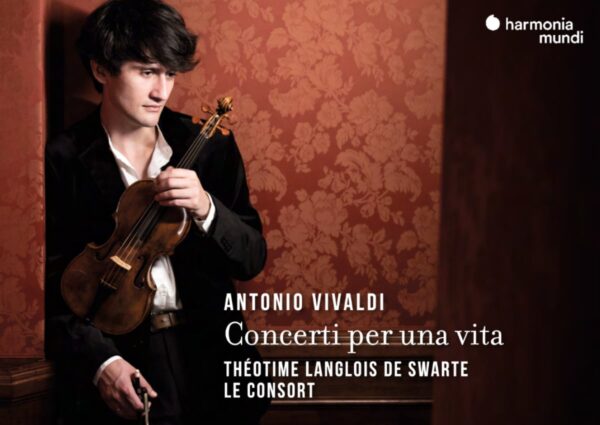This release completes René Jacobs’ Schubert cycle. This is the first recording in the series I have heard; having read several reviews of previous entries, I listened expecting unusually fast tempos, overdone dynamic contrasts and a more heterogenous historic instrument sound. While these qualities are apparent, they were rarely, if ever, disruptive. There is, however, a provocative component to the album, which Jacobs describes in his scholarly and lengthy liner notes.
Jacobs argues that the B-minor Symphony was not left “unfinished,” but that Schubert considered it complete, because the two-movements are based on Mein Traum (My Dream), an autobiographical narrative by Schubert written while he was also composing the symphony. Mein Traum is in two parts: the first deals with his mother’s death and estrangement from his father, while the second passes into a more incorporeal realm which ends with a reconciliation between Schubert and his father.
The performance of the unfinished is certainly the fastest I know, both movements take 21’51,” the second more ‘con moto’ than “andante.” The first movement’s lower string opening line becomes restless and agitated, whereas Blomstedt (reviewed here) and Brüggen (another period instrument performance) conjure a greater sense of foreboding. Jacobs’ lead up to the central climax (track 6, beginning 6’37”) is masterfully built, the brass interposing a fierce, angry dread, but the scurrying string lines lack presence and weight in the overall texture.
Jacobs draws out a wonderful array of colors in the second movement, yet his insistent forward momentum doesn’t give us enough time to appreciate them fully – Blomstedt and Brüggen do. Of the three readings, Brüggen is the most overtly ‘Romantic’ in shaping of phrases and use of rubato and the winds of the Orchestra of the 18th Century bring an emotional rawness to their many solos. Of course, Brüggen (I assume) views this music as the slow, gloomy second movement of a four-movement work, whereas Jacobs views it as a concluding, happier final movement. Blomstedt and Brüggen are both more emotionally satisfying. The ninth is not overly quick, and the amount of orchestral detail heard is testament to both the quality of the playing and audio engineering. Pentatone provides a forensic clarity that has warmth and a wide sound stage.
Related Posts
- Double Review: Quatuor Arod and the Signum Quartett Play Schubert
- Review: Schumann – Complete Symphonies – Pablo Heras-Casado, Münchner Philharmoniker
- Review: Weber – Der Freischütz – René Jacobs (2022)
Jacobs first movement is beautifully shaped, although there is a slight loss of tension in the shift from the slow opening and the main Allegro. The B’rock Orchestra give their all to Jacobs, offering high-energy, vividly characterized playing. A comparison with Blomstedt is in some sense unfair because these are two distinctly different sound aesthetics. But B’rock certainly present a greater sophistication than their 1990s Orchestra of the 18th Century colleagues.
In the second movement’s main climax (7’30”) B’rock’s sound is somewhat underpowered. Jacobs also slightly accelerates after that passage, perhaps an attempt to heighten the drama, but instead, it weakens it. And while I would not advocate for consistent vibrato, surely Jacobs could allow for some in these many gorgeous lyrical melodies? His scherzo is surprisingly moderate, Jacobs sees this music as a gruff, village dance, whereas Blomstedt instills a sophisticated urbanity – both persuasive views.
The final movement is high energy, providing opportunity to enjoy the raspy, fruity colors of the B’rock winds. Their agile strings play with impressive unanimity. Is this the liberation Jacobs argued for in this note? While B’rock cannot offer the same tonal splendor one hears in modern orchestras, the playing has equal levels of energy and sophistication.
If I rate Blomstedt’s recording more highly, it is in large part because I ultimately prefer the richer tonal allure in Leipzig. But Jacobs has a lot to say about this music and his orchestra had me marveling anew at the brilliance of Schubert’s writing.

Schubert – Symphonies Nos. 8 & 9
B’rock Orchestra
René Jacobs – Conductor
Pentatone, CD PTC5186894
Recommended Comparisons
Read more classical music reviews or visit The Classic Review Amazon store
Follow Us and Comment:
Get our periodic classical music newsletter with our recent reviews, news and beginners guides.
We respect your privacy.









